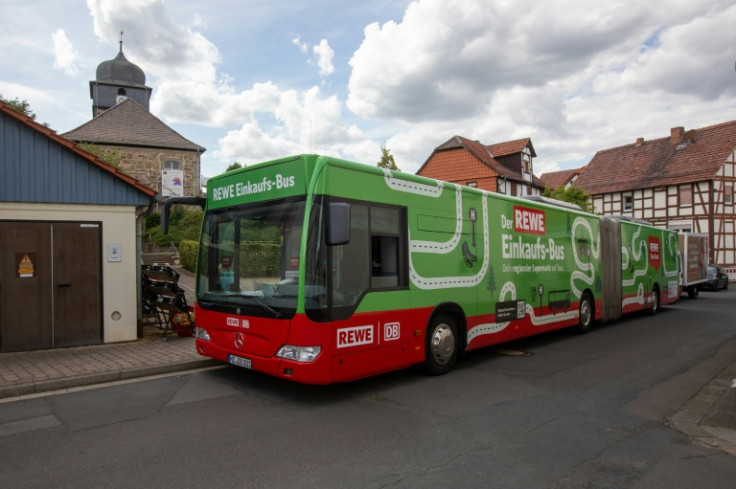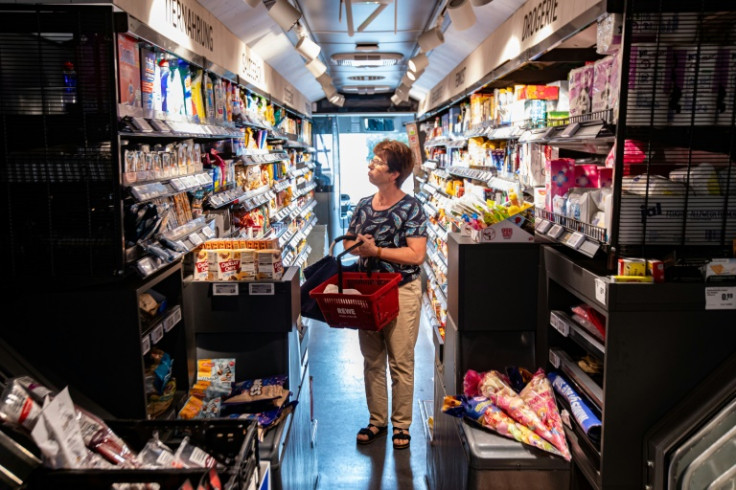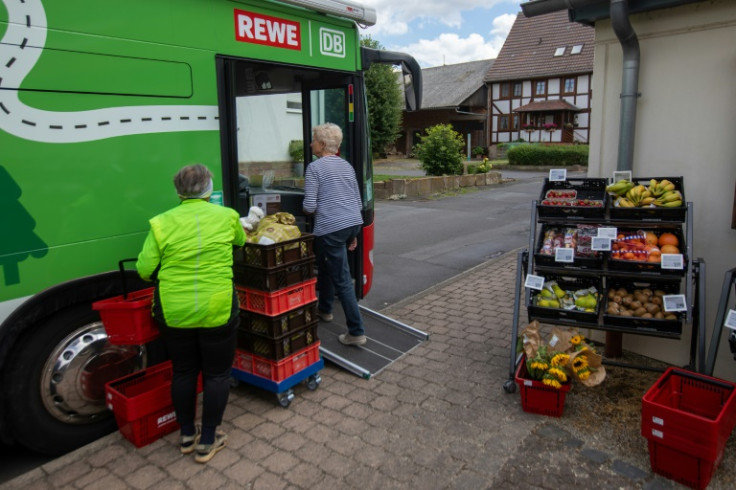All Aboard: Grocery Bus Caters To Isolated German Villages

In the western German village of Lohne, where the only grocery store closed its doors earlier this year, residents now do their food shopping on board a red-and-green supermarket bus that rolls into the main square once a week.
For 90 minutes, locals get a chance to buy the essentials without having to get into a car to drive to the nearest store.
The supermarket-on-wheels is a pilot project between Germany's third-largest food retailer, REWE, and the Deutsche Bahn rail and transport company.
The bus began plying its route in March, catering to rural villages in the state of Hesse where brick-and-mortar stores have become an increasingly rare sight, turning some areas into so-called food deserts.
For the roughly 600 inhabitants of Lohne, where the balconies are dotted with colourful geraniums, the arrival of the REWE shopping bus is a welcome sight after the village's only mini-mart closed for good in the spring.
"I can get the basics here," said 90-year-old Inge Nehreng, who rode her electric trike for three kilometres (1.8 miles) to join the weekly bus rendez-vous.
"If I need something special, I go to a department store," she added.
Parked on the village square, the 18-metre (60-feet) long bendy bus carries over 950 everyday products.
Fresh fruit and vegetables are on display outside the bus, while inside the choice ranges from food items to cigarettes, newspapers, soap and condoms.
"The only things missing are nappies and wet wipes," said Yasmine Schneider, 34, who was shopping with her toddler Felix.
The mobile supermarket has also become a popular meeting place, a chance for the often elderly residents to catch up while getting their weekly groceries.
"After shopping, we sit on a bench and talk a bit," said 85-year-old Ursula Sauer, who lives alone.
From Monday to Saturday, the supermarket bus covers a 600-kilometre route, stopping at 23 villages.
The prices on board "are the same" as in the REWE supermarkets, said Joern Berszinski, who manages the supermarket bus.
Deutsche Bahn provides the driver for the project, while the onboard cashier is employed by REWE.
Despite its appeal, it remains to be seen how profitable the bus service will be.
"It takes three years for a stationary shop to turn a profit, the bus could also take a few years," said Berszinski, who has run franchises under the REWE banner for 30 years.
A key selling point for the mobile supermarket is that REWE can reach more customers with a single sales team.
"At a time when there's a shortage of skilled workers, that's an advantage," said Frank Klingenhoefer, in charge of mobility services at Deutsche Bahn Regio.
The bus project has not gone unnoticed in Germany, where nearly 2,000 supermarkets of fewer than 400 square metres (4,300 square feet) have closed over the past decade, according to the EHI retail research group.
"Many communities in other regions have expressed an interest," said Klingenhoefer.
The REWE supermarket group plans to wait until the end of the pilot project in March 2025 before deciding whether to expand.
Deutsche Bahn already has eight "medical buses" crisscrossing the countryside to tend to Germany's ageing population in remote areas.
It also has plans for a bus offering banking services.
Klingenhoefer said he could imagine services like shoe and clothing repairs on wheels as well, anything "where the needs of a single village are too small" to justify a brick-and-mortar investment.


© Copyright AFP 2024. All rights reserved.




















